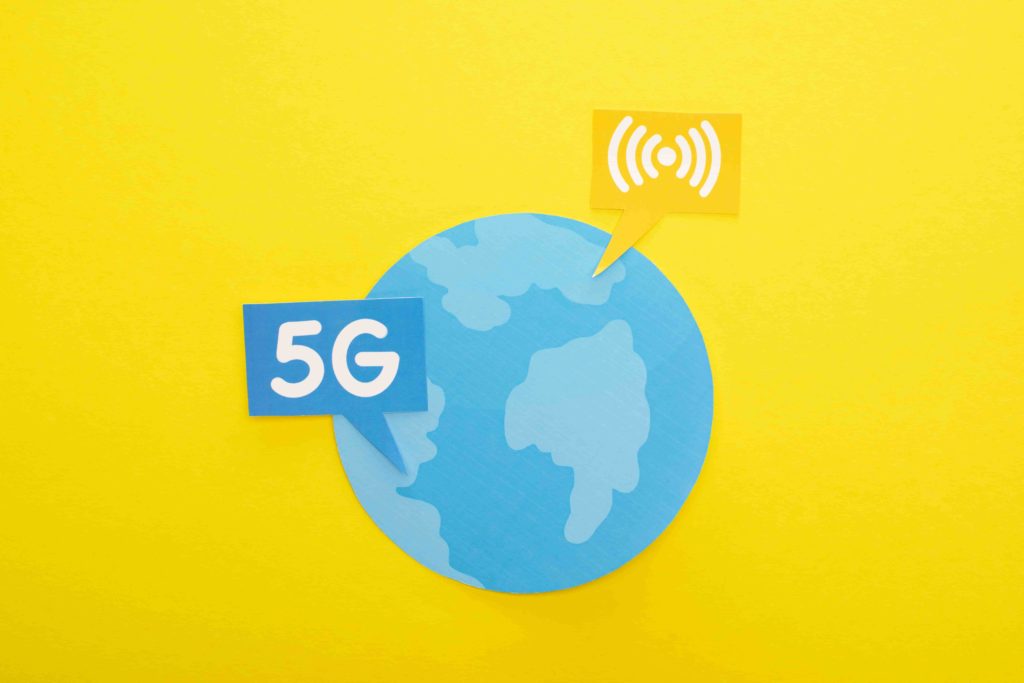How 5G is Revolutionising Online Experiences
5G technology is not just another incremental upgrade from its predecessor, 4G. It represents a significant leap forward that is set to transform many industries, particularly online experiences and web hosting. With faster speeds, lower latency, and greater bandwidth, 5G is poised to revolutionise the way websites are hosted, delivered, and experienced by users across the globe.
In this article, we’ll dive into what 5G technology is, its key features, and how it’s reshaping the future of online experiences and web hosting.

What is 5G Technology?
5G is the fifth generation of mobile network technology. It was developed to meet the ever-growing demand for faster data transmission, increased device connectivity, and real-time communication. Offering speeds up to 100 times faster than 4G, with latency reduced to as low as one millisecond, 5G networks provide unparalleled connectivity for both consumers and businesses.
According to Qualcomm, 5G could enable speeds of up to 10 Gbps, which is essential for supporting high-quality video streaming, ultra-fast downloads, and next-gen applications like augmented reality (AR), virtual reality (VR), and Internet of Things (IoT) networks.
Key Features of 5G Technology
Before we explore how 5G is changing online experiences and web hosting, it’s important to understand its core features:
- Increased Speed: 5G is significantly faster than previous network technologies. Websites can load almost instantaneously, even those that are data-heavy, such as those featuring high-resolution images, videos, and interactive elements.
- Reduced Latency: Latency refers to the delay between sending and receiving information. 5G’s ultra-low latency improves responsiveness, allowing for near-instantaneous communication between servers and devices.
- Greater Bandwidth: 5G supports a greater number of devices and larger data transfers simultaneously. This feature is essential for managing the growing number of connected devices and supporting high-demand applications.
- Network Slicing: 5G allows network slicing, which means the creation of multiple virtual networks within the same physical infrastructure. This allows businesses to have dedicated resources for specific purposes like streaming or IoT applications, enhancing overall performance.
How 5G is Revolutionising Online Experiences
5G is set to revolutionise online experiences in several key ways:
1. Enhanced User Experience
Faster load times and seamless navigation are at the core of great user experiences. 5G’s increased speed ensures that users won’t face long waits for websites to load or videos to buffer. This can significantly reduce bounce rates and increase engagement, especially for content-heavy sites like e-commerce platforms, media sites, or online learning portals.
With faster speeds and reduced latency, real-time interactions such as video conferencing, live streaming, and multiplayer gaming will feel smoother, creating more immersive experiences. As 5G becomes more widespread, we’ll also see new types of digital experiences emerging, such as augmented reality shopping or virtual reality social networking.
2. Improved Mobile Performance
The future of internet access is mobile, and 5G will enhance mobile browsing in ways that previous generations of wireless networks could not. According to Ericsson, by 2025, 5G is expected to account for 45% of global mobile data traffic, driven by the rise in mobile video and gaming (https://www.ericsson.com/en/reports-and-papers/mobility-report).
This shift will make it more critical for businesses to optimise their websites for mobile. With faster 5G networks, users will expect web pages to load as quickly on mobile devices as they do on desktops. Sites that take advantage of 5G speeds will offer a significant competitive advantage, particularly for mobile-first businesses or those relying on location-based services.
3. The Rise of AR and VR
Augmented reality (AR) and virtual reality (VR) technologies have been limited by the slow data transfer rates of 4G networks. 5G’s faster speeds and low latency will allow for real-time rendering of high-quality, immersive AR and VR experiences.
This opens up opportunities for industries like retail, real estate, and entertainment to provide virtual experiences for users. For example, an online store could use AR to allow customers to “try on” clothing virtually, or a property developer could offer VR tours of homes.
In the gaming industry, 5G could enable cloud-based gaming services that require minimal hardware on the user’s end. Gamers could stream high-quality games on their phones or laptops without needing a powerful computer or gaming console.
The Impact of 5G on Web Hosting
5G technology is not only enhancing user experiences but also having a profound impact on web hosting. Here’s how 5G is shaping the future of web hosting:
1. Faster Data Transfers for Web Hosting
The increased speed of 5G allows web hosting providers to offer faster data transfers between servers and users. Websites hosted on servers that are optimised for 5G networks can deliver content at much higher speeds, regardless of where the user is located. This means even resource-intensive websites, such as those using large databases or featuring high-quality multimedia, will benefit from 5G’s enhanced data transfer capabilities.
For web hosting providers, this translates to faster service delivery, reduced load times, and a smoother overall experience for end-users.
2. Greater Capacity and Scalability
The ability of 5G to handle more devices and larger amounts of data at once will enable web hosting providers to scale more efficiently. As more businesses move their operations online and websites grow in complexity, hosting providers must handle increased demand without sacrificing performance.
With 5G, hosting companies can allocate resources more efficiently and ensure that websites remain fast and reliable even as they scale. This is especially relevant for cloud-based hosting and content delivery networks (CDNs), which will be able to distribute content more effectively across edge servers closer to users.
3. Edge Computing and 5G
Edge computing is a decentralised approach to data processing, where computation is performed closer to the data source rather than in a centralised data centre. Paired with 5G, edge computing becomes even more powerful, reducing latency and improving website performance by processing data at the network’s edge, closer to the user.
This combination of 5G and edge computing can lead to a more distributed web hosting model, where the location of servers matters less, and performance remains consistent no matter where users are accessing content from.
As edge computing grows in adoption, it will help web hosting companies enhance their service offerings by reducing latency, improving security, and providing faster content delivery to end-users.
4. Better Support for IoT and Smart Applications
As more IoT devices come online, hosting providers will need to support the vast amounts of data generated by these devices. 5G’s increased capacity and speed are essential for managing the massive influx of data from IoT applications. Whether it’s a smart home device sending real-time updates to a central server or an industrial IoT application requiring continuous data processing, 5G will provide the infrastructure to handle this efficiently.
For web hosting providers, this means adjusting infrastructure to support IoT applications and ensuring scalability as more devices come online.
Conclusion: The Future of Web Hosting and Online Experiences with 5G
5G technology is ushering in a new era of speed, connectivity, and innovation. With its ability to reduce latency, increase speeds, and improve scalability, 5G is set to revolutionise online experiences by enabling faster websites, seamless mobile browsing, and the rise of AR/VR experiences.
For web hosting, 5G will allow providers to offer enhanced services with faster data transfer, greater capacity, and better support for IoT applications. As edge computing and cloud hosting evolve alongside 5G, businesses will be able to deliver content faster and more efficiently to users worldwide.
As 5G becomes more widespread, businesses that embrace this technology will benefit from enhanced performance and customer satisfaction, making it a critical component of future online strategies.
References:
- Qualcomm: https://www.qualcomm.com/5g/what-is-5g
- Ericsson: https://www.ericsson.com/en/reports-and-papers/mobility-report
This informative overview highlights the transformative impact 5G technology will have on both online user experiences and the web hosting industry in the near future.


